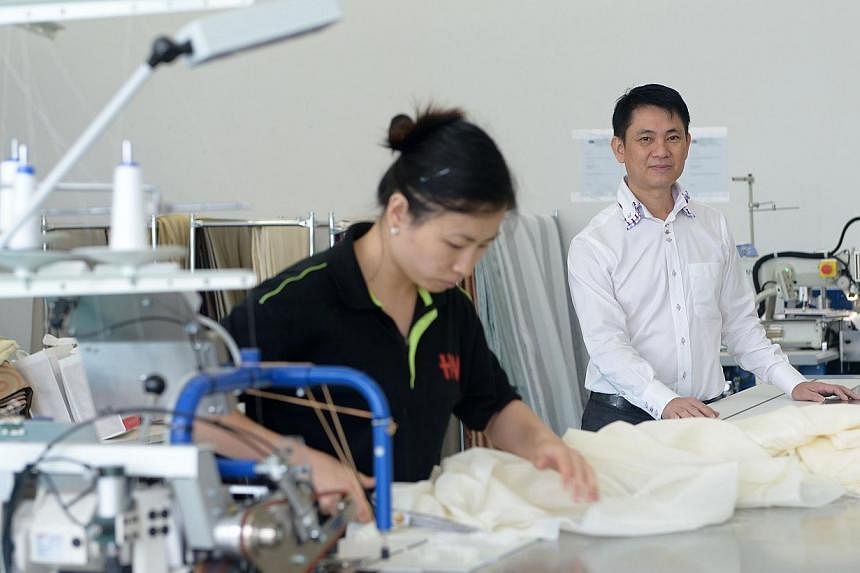The boss of local soft furnishing company Hong Ming Store, Mr Lim Kien Huat, has spent the past two years watching his sales dwindle by 30 per cent.
The number of walk-in customers at his six retail outlets has also thinned considerably, and he is blaming his competitors in Malaysia.
"Many customers go to Malaysian sellers because their prices tend to be cheaper," said the 50-year-old, who specialises in furnishings such as curtains and blinds.
Mr Lim is not the only curtain maker complaining about Malaysian competitors who have been increasingly targeting Singaporean home owners.
Some of them drive from across the Causeway to newly built estates in vans and motorcycles, hawking their goods from carparks or knocking on doors.
Others establish a firm presence online or by phone, and come only by appointment.
Business has been so lucrative that Singaporeans form the bulk of patrons for firms such as Johor Baru-based J&B Curtain and Miki Curtains & Furnishing.
"Compared to customers in JB, Singaporeans are more willing to spend to make their houses look nice," said J&B Curtain co-owner Anthony Hui, 29, who takes appointments through the phone and website.
Mr Hui's company, set up by his father 15 years ago, started venturing into Singapore four years ago. Nearly 95 per cent of its business is from Singaporean clients, and he gets four to five appointments each week.
The manager of Miki Curtains & Furnishing, Ms Leong Chew Fen, 40, said she comes down once or twice a week by appointment. "A lot of old customers refer us to their friends and relatives," said Ms Leong, adding that about half of her business comes from Singapore. "We can offer lower prices because our rental in JB is cheaper."
Prices go even lower with curtain makers who sell their goods from vehicles.
An average curtain from Hong Ming Store can cost $15 to $20 per metre, said Mr Lim.
But with no shopfront and rental overheads, mobile vendors can set prices that are 10 per cent to 30 per cent lower than those of Singapore shops, local bosses said.
"You can tell from their number plates that most of them are from Malaysia," said Mr Simon Neo, 53, owner of local furnishing store Neowin Collection.
Due to the competition, his sales have slid 15 per cent to 20 per cent in the past three years.
"They can also save on worker levies, so their operation costs are much lower," said Mr Neo.
But there will be no curtain call for local firms amid the stiff competition, as some of them are planning to up the ante, raise the competition and stay afloat.
Mr Lim started organising bulk sales two months ago, selling his goods at cheaper rates to groups of 10 or more people.
The response has been warm, he said, and he expects the sales to attract more customers.
Local business Golden Leaf Curtain, which has been around for 41 years, is also reinventing itself to deal with its 20 per cent decline in sales over the past four years.
Managing director John Tan, 54, said his company started using machines to sew its curtain pleats last year, and plans to bring in more machines next year. "This bumps up productivity and cuts costs in the long run."
For customers, the rise in competition spells more options.
Fitness trainer Andy Neo, 34, who is looking to buy curtains for his new Pasir Ris flat, said he would not mind patronising sellers who are either from Malaysia or operating out of vehicles.
"As long as the service and quality are good, why not?"
But Punggol resident and business owner Kareen Lai, 32, prefers to be cautious. "There's no assurance if there's no shopfront. What if they run away with my deposit, or there's something wrong with the fabric?"
While the Consumers Association of Singapore (Case) does not have records of complaints against Malaysian furnishing businesses, its executive director, Mr Seah Seng Choon, advised against buying goods from them.
He said: "Any disputes that might occur would be difficult to resolve since the company is located in Malaysia."


